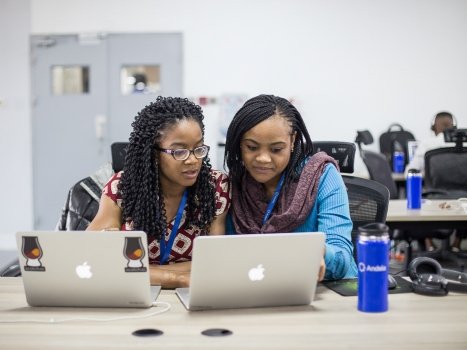The Nigerian Communications Commission (NCC) has announced the commencement of the training of another batch of 600 youths in ICT to make them relevant in the new digital age.
According to the Commission, this is contained in a statement issued to the media this week in Ibadan.
The two-week-long training, under the Digital Literacy and skills, would commence simultaneously in Ibadan, Lagos, Ilorin, Abuja, and 12 other centres nationwide.
The package for the training includes free accommodation and feeding of participants, provision of free laptops, computers, mobile mifi internet devices with three months subscriptions, training materials, and training certificates to the participants.
He said the policy was aimed at redirecting and repositioning the Nigerian youth towards the digital era through digital job creation programmes.
“This involves a two-week training and capacity building initiative for about 600 youths across the six geopolitical zones that will harness their strength and stimulate/empower them for self-employment,” he said.
The Commission said that the effort would increase contributions of the Information and Communication Technology (ICT) sector to the Gross Domestic Product (GDP) of the Nigerian economy.
According to the Commission, the expected outcomes of the programme shall include, but not limited to, the implementation of digital inclusion via digital job creation, targeted at the youth; “Reach out to the youth who lack ICT training tools to fit into the digital economy and realize their potential through provision of modern ICT tools to support their trade.
It said it would “Create a pool of Master-Trainer-Youths who will serve as mentors and trainers to others in their communities and to enhance their earning potentials.”
The training is aimed at strengthening technical and scientific competencies among Nigerian youth, while improving their ability as trained youth to share experiences using ICT as a medium.
It said that the training would improve access to ICT enabled services such as banking, micro, and macro enterprises systems.
“It will strengthen youths’ ability to use digital skills to process documents for planning and budgeting purposes as well as strengthen the ICT Micro and SMEs sub-sector of the economy.
Furthermore, it intends to equip artisans/youths with the relevant ICT technical skills for smartphone diagnostics, assemble and repairs. Increase self-employment opportunities and increase access to information,” the commission added.




